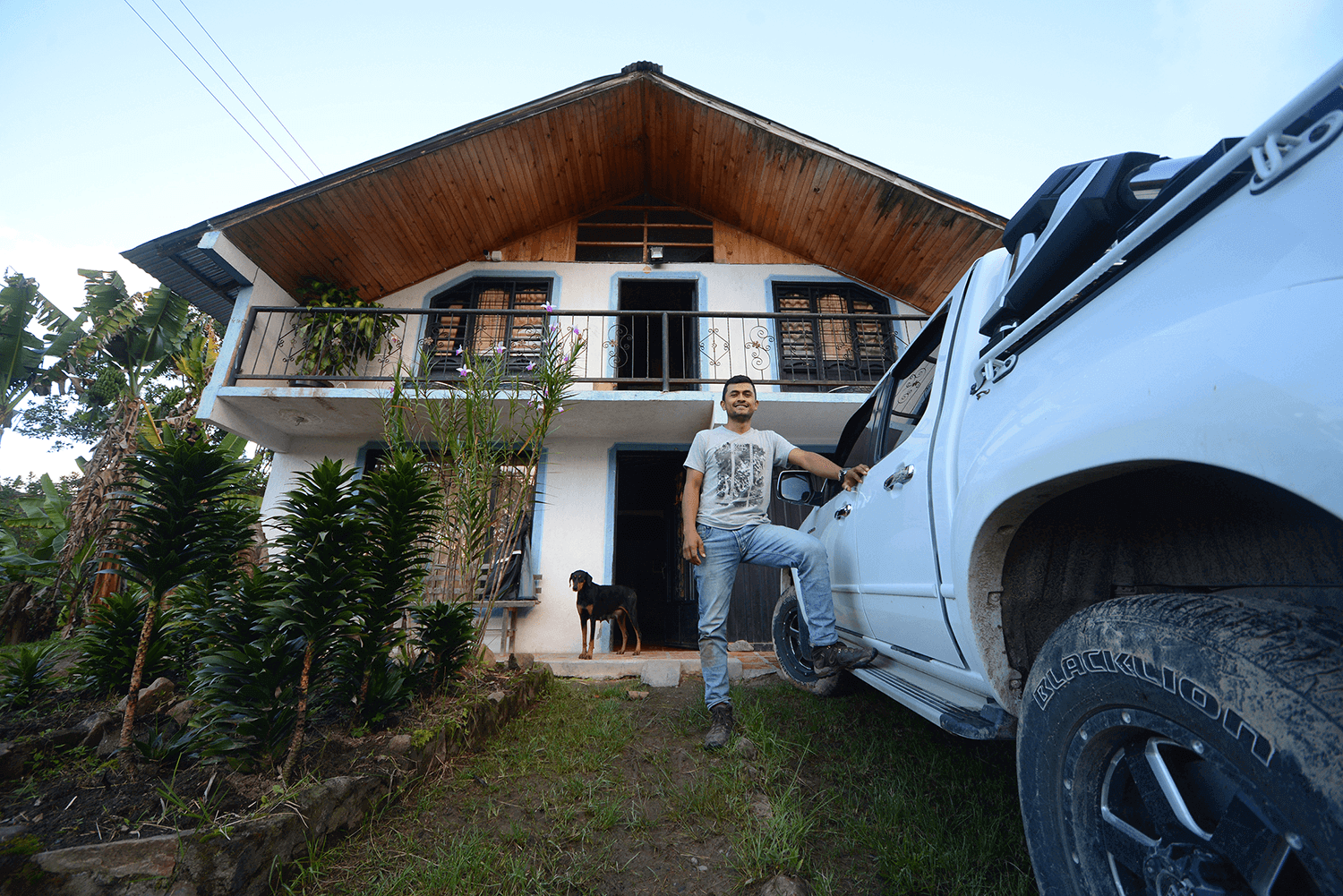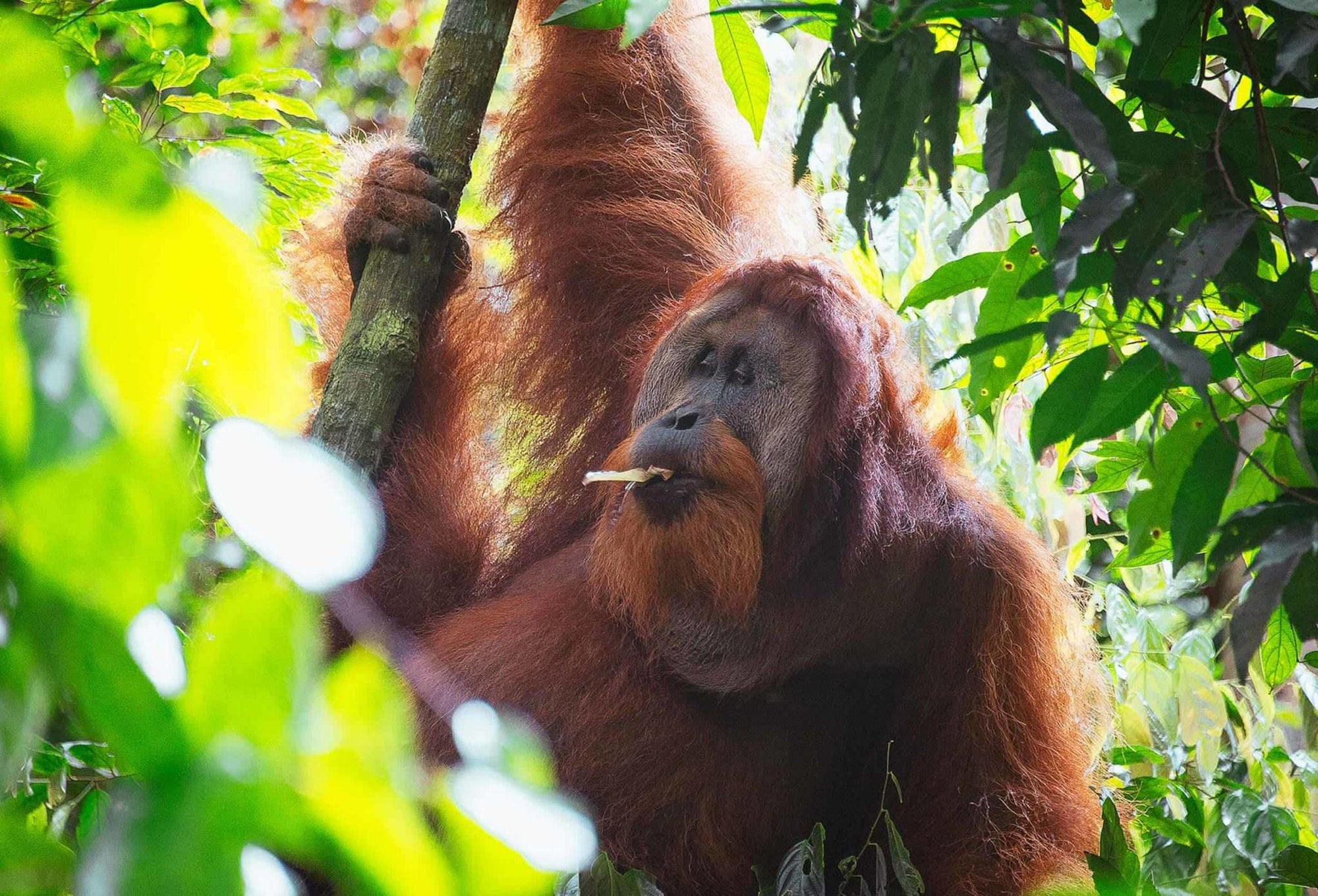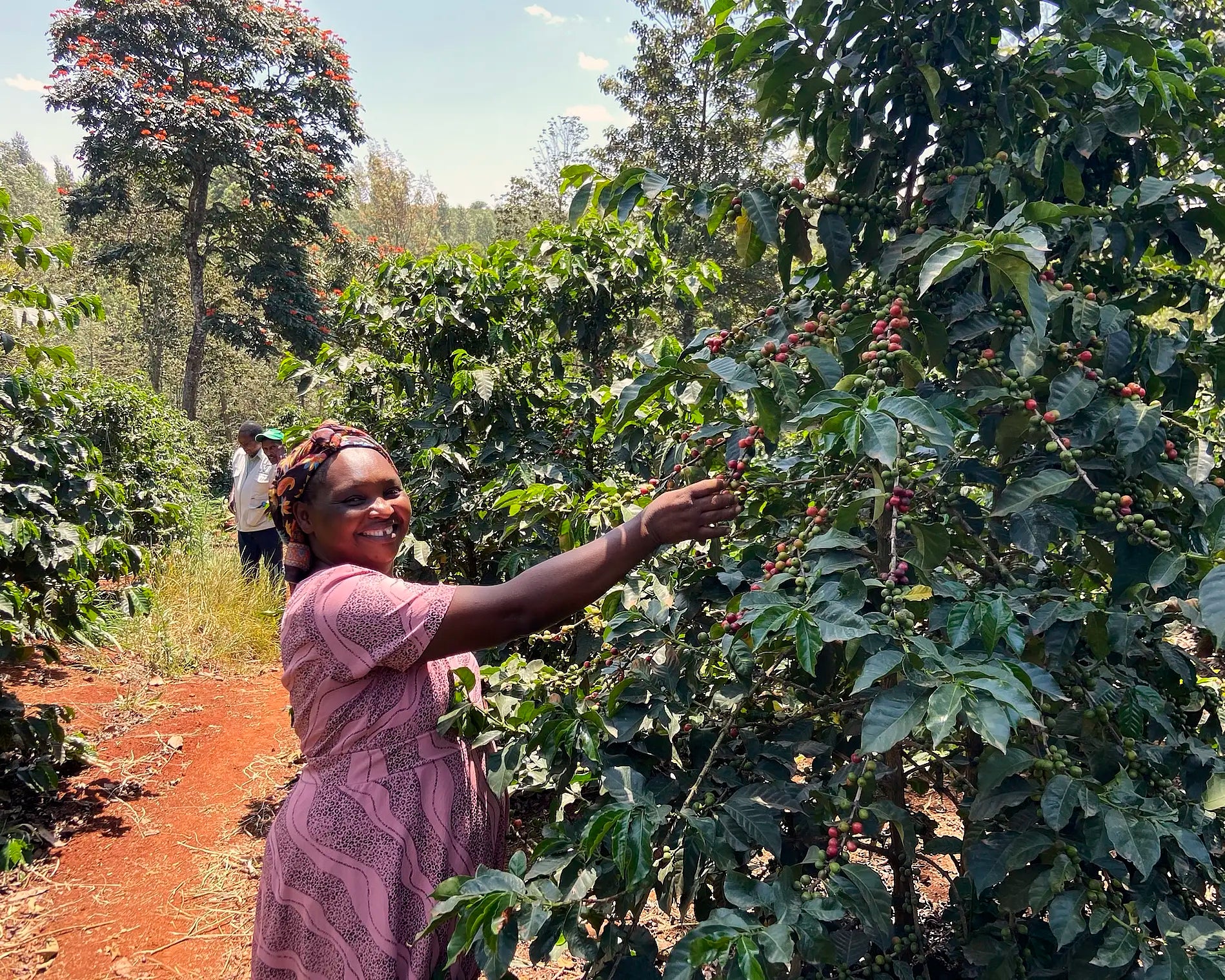LOCKDOWN

Zurich, 16 March 2020. We’re sitting in front of our TV screens when the Federal Council announces the nationwide lockdown at 5:30 pm. All ViCAFE Espresso Bars are to be closed on 17 March. Switzerland holds its breath and, as an SME, we’re faced with a scenario for which we don’t have a strategy saved on our server.
At the same time, in Pitalito, Colombia, Oscar Hernandez is sitting at his kitchen table at Finca Los Nogales when Colombian President Ivan Duque announces on TV that all land and water borders with Ecuador, Peru and Brazil will be closed. The borders with Venezuela are already closed. So far, a total of 57 Covid-19 cases have been counted. A week later, on 24 March, Colombia declares a national state of emergency and announces a nationwide lockdown. 50 million Colombians have to stay inside their homes.
THE PANDEMIC REACHES COFFEE ORIGIN COUNTRIES
The virus did not come to Finca Los Nogales, but fear and uncertainty did.
Oscar, the coffee producer from southern Colombia, is not only following the development of the Covid-19 pandemic in his home country, but also very closely in Japan, England and Switzerland, where his coffee is roasted and enjoyed, and where his future now hangs in the balance.
We phoned him to ask how he is and what the pandemic means for him and his family business.

Hello Oscar, how are you and your family?
We are all fine and healthy, thank you. The whole family has withdrawn to the finca. We have everything we need to survive up here. The only things that don't grow on our land are mobile phone credits. I go down into the valley once a week for that.
Colombia is closed. How does that affect you at Finca Los Nogales?
It hardly affects our work. We have more than enough space to keep the required two-meter distance between us. Fortunately, the harvest season is over. For the time being, we are getting by with the help of the whole family.
The only thing is that the organic fertiliser that I bought for our joint bourbon rosado project has not yet arrived. The nationwide supply and logistics network is standing still, because the people in the transport sector are also staying at home and numerous access roads to the south are barricaded by starving people.

Barricades and hunger. That sounds dramatic.
It is tragic. The national lockdown is only working in some respects. Millions of Colombians work in the informal sector and live from hand to mouth. People hang red flags from their balconies to signal that a family in need lives there. Government support reaches few and the politicians are struggling. Corruption is still the number one problem, then only coronavirus. People often have no choice. They have to go out to get money and food.
Now, the small harvest in July is approaching. The main harvest follows in December. Are you afraid that you won't be able to recruit enough pickers to harvest the coffee cherries in time?
I'm not worried about the pickers. We pay higher wages than neighbouring farms to ensure the best pickers work for us. The quality of the coffee is already decided in the selective, hand-picked harvest process. The supply of workers is above average due to the coronavirus crisis. Many people are looking for work, so it will not be a problem to find enough experienced staff. I also hope that the situation will relax somewhat before the harvest.

So everything is running smoothly and you don't have to worry about Covid-19?
Not at all. I am very worried about our business. I keep track of the international news and it worries me when I see that my two most important customers have had to close their coffee shops due to a lockdown. Together, we form a value chain and the economic success of the roasters has a direct and lasting impact on my family business. When I see that the coffee shops in Europe and Asia are closed, it gives me sleepless nights. What happens if one of my customers doesn't survive the crisis? How much coffee will the roasters buy at the end of 2020? My plants follow a natural cycle and don't take a break during the lockdown. If less specialty coffee is consumed in the sales markets today, I will sit on the coffee that is currently ripening on the trees at the end of the year.
So you are directly affected by the pandemic and the economic lockdown in Switzerland.
The risk is real. The economic consequences of our coffee farm are delayed because I am at the beginning of the value chain and thus the natural cycle. However, I have great confidence in our partnership and I am convinced that ViCAFE will master this crisis well.

We'll probably do it. We also try to encourage our customers to drink more coffee. We’ve just launched a new product, the ICED COFFEE, for which we exclusively use your coffee beans.
I'm very happy about that and can't wait to try such an Iced Coffee. The pictures look great. Thank you for having faith in my work.
Apart from the economic risks, are there any other Covid-19-related topics that scare you?
Fear isn’t the right word and doesn’t suit me. I’m an optimist and as a coffee farmer in southern Colombia you always face risks. You learn to deal with it. Aside from the coronavirus, advancing climate change is the greatest threat to our industry.
But an impending recession, poverty and famine brought on by the Covid-19 pandemic can also pose a threat to us farmers. The risk of violent robberies and food theft increases when people in the region are out of work. I protect the Finca Los Nogales with guard dogs. The little Doberman puppies Sam and Loki, which you met on your last visit, are now one year old and have learned a lot from the German shepherd Bruno. The dogs play an important role in protecting my family.

What do you wish for the rest of 2020?
I wish that my family stays healthy and that the whole world can find some rest. I also wish that ViCAFE customers in Switzerland continue to appreciate specialty coffee. We will survive this crazy year 2020 and continue to pursue our joint projects.
What can we do for you here in Switzerland?
Drink coffee. Drink coffee. Drink coffee. (Oscar laughs.)



